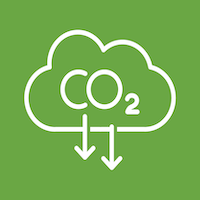Home Performance Policy
The Performance Playbook: A Policy and Program Design Strategy for Accelerating Energy Efficiency and Electrification Goals
Wednesday, April 19, 2023
8:30 AM - 9:30 AM
Location: 301 (Hyatt)
CEU Type(s): ASHI, BPI, INTERNACHI, NARI

Andy Frank (he/him/his)
Co-Founder and President
Sealed
New York City, New York
Through case studies of leading heat pump programs, including California’s Technology for Clean Heating (TECH), the City of Denver, Colorado’s residential electrification, and New York State’s Clean Heat, and retrospective analysis on how states implemented American Reinvestment and Recovery Act (ARRA) funding, the presentation will answer the two following questions:
● how best to accelerate the market adoption of heat pumps to meet energy, equity, and climate goals?
● how best to successfully integrate the Inflation Reduction Act’s funding, programs, and rules into their state’s existing ecosystem of programs, while also achieving energy efficiency goals established by state utility commissions?
The presentation will focus on the following principles that heat pump incentive programs should be:
● Easily accessible for both consumers and market participants;
● Flexible to adapt to evolving market conditions and long-term policy goals;
● Performance-based to ensure market actors complete high-quality installations to ensure all stakeholders capture all the benefits of heat pumps;
The presentation will share recommendations on these questions in the context of data-driven analysis that leverages internal company data (i.e., project values, installation barriers, etc.), external market factors (i.e., consumer awareness, regulatory structures, etc.) in multiple geographic markets, and industry research.
● how best to accelerate the market adoption of heat pumps to meet energy, equity, and climate goals?
● how best to successfully integrate the Inflation Reduction Act’s funding, programs, and rules into their state’s existing ecosystem of programs, while also achieving energy efficiency goals established by state utility commissions?
The presentation will focus on the following principles that heat pump incentive programs should be:
● Easily accessible for both consumers and market participants;
● Flexible to adapt to evolving market conditions and long-term policy goals;
● Performance-based to ensure market actors complete high-quality installations to ensure all stakeholders capture all the benefits of heat pumps;
The presentation will share recommendations on these questions in the context of data-driven analysis that leverages internal company data (i.e., project values, installation barriers, etc.), external market factors (i.e., consumer awareness, regulatory structures, etc.) in multiple geographic markets, and industry research.
Learning Objectives:
By attending this session, attendees will:
- Understand the potential negative impacts of overincentivizing measures, particularly heat pumps
- Describe the difference between downstream and midstream program designs
- Define the role and importance of aggregators in newer program designs that leverage measured savings


